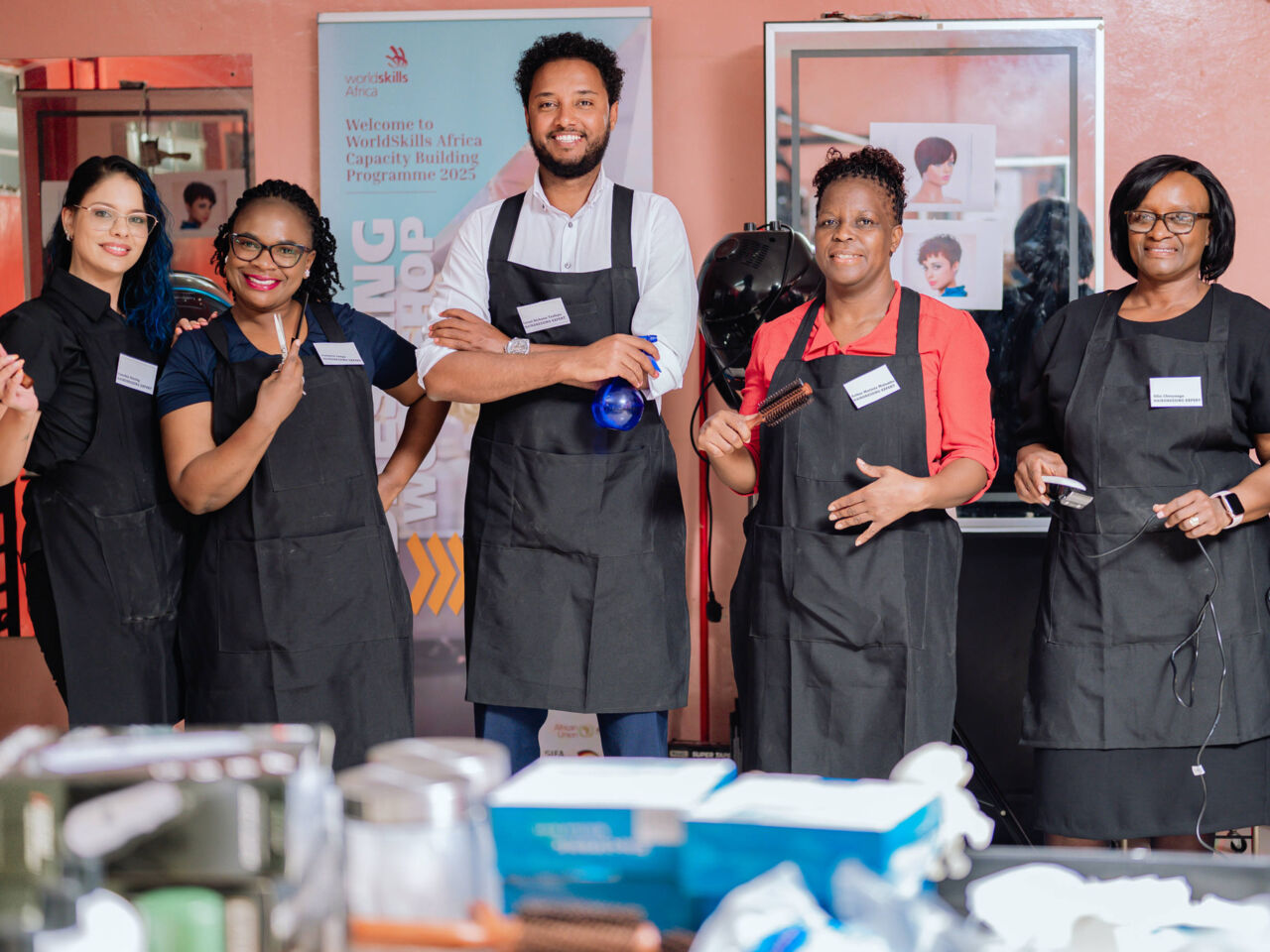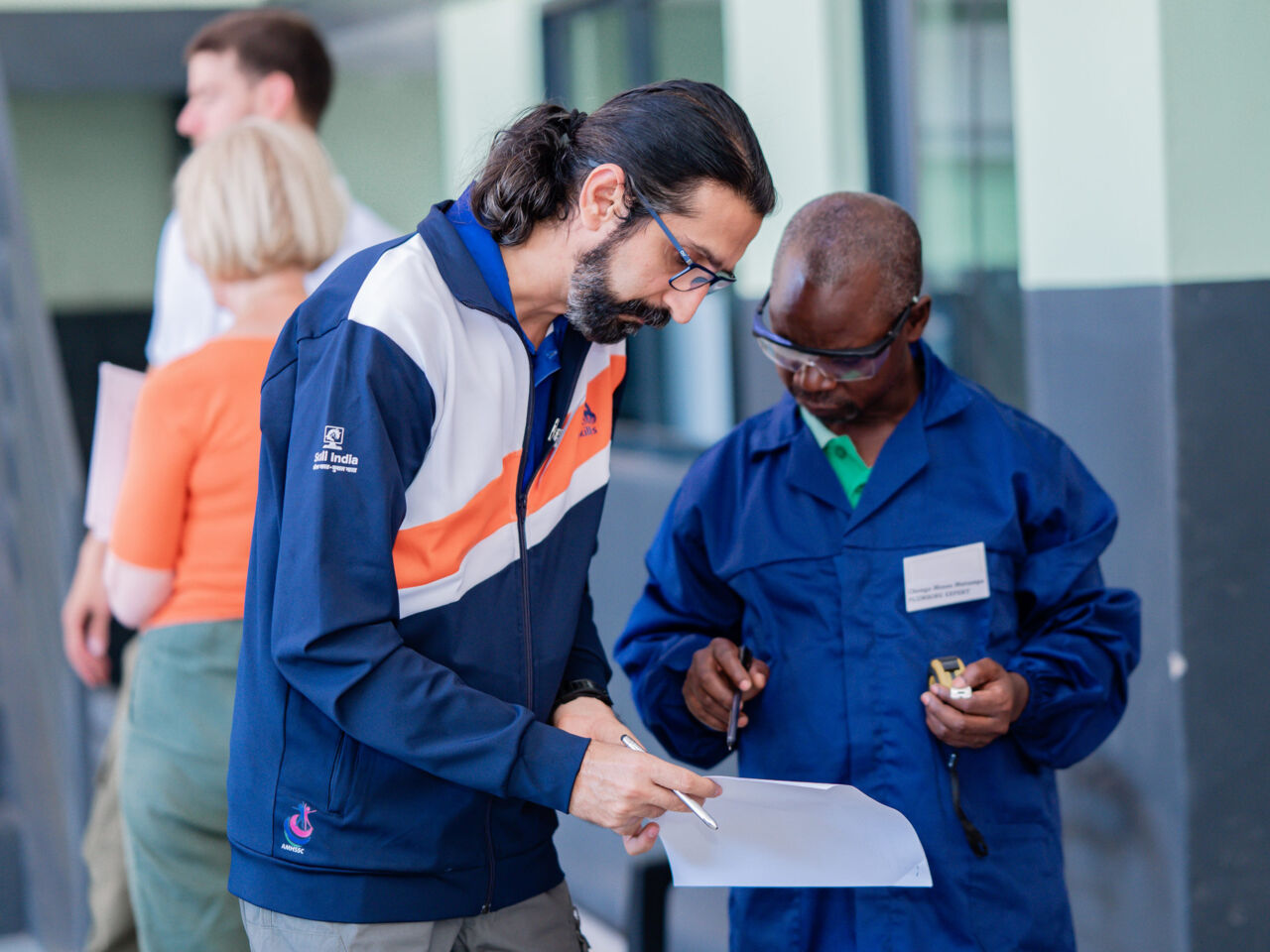5 June 2025
WorldSkills Africa Members help co-design a new framework for capacity building
The workshop in Zambia was the heart of a six-month programme to create an adaptable framework for strengthening skills training across Africa.

Experts from six WorldSkills Africa Members met in Lusaka for a three-day workshop last month on skills training and assessment, part of the WorldSkills Africa Capacity Building Programme to upskill trainers, raise standards, and strengthen national skills systems.
The workshop on 20 May 2025 was the focal point of a six-month programme for Experts and Chief Experts to co-design an adaptable framework, which can be rolled out across more skill areas and countries, supporting skills development across the continent.
The programme reflects WorldSkills Africa’s commitment to skills excellence, outlined at its launch last February. While skills competitions play a critical role in benchmarking and promoting excellence, WorldSkills Africa Members have identified a need to invest in the capacity of trainers from Technical and Vocational Education and Training (TVET).
David Hoey, CEO of WorldSkills International, says, “This programme reflects a fundamental advancement in how we can support skills development in Africa. By investing in the people who train and inspire others, we are building the foundations for long-term change, one that is locally-led, globally-informed, and deliberately designed to scale.”
Funded by the German Development Cooperation (GIZ) and the African Union Development Agency – NEPAD, the programme began with weekly online training on occupational levels, transversal skills, understanding assessment, and adapting these to African contexts. Experts from WorldSkills Ethiopia, WorldSkills Namibia, WorldSkills Zambia, WorldSkills Zimbabwe, WorldSkills Rwanda, and WorldSkills Malawi then came together for hands-on practice and peer assessment.
The workshop was a critical milestone in the programme, allowing Experts to assess their performance, while Chief Experts adjusted training targets based on real-world teaching environments.
The pilot focused on two skills – Plumbing and Hairdressing – to ensure the framework reflected diverse learning needs and had strong gender representation among the Experts. For Hairdressing, the programme also created space to address specific regional expertise, such as working with African hair types.

“The workshop was so helpful for my own skills development. There is a saying that goes: to teach is to change lives, and I want to shape the future of the next generations. The Test Project wasn’t easy for me, but I’ve been able to grasp the most important concept,” says Patience Lungu, Hairdressing Expert from Zambia.
Following the workshop, Experts will engage in a series of online mentorship sessions from June to August. These sessions are designed to focus on training techniques, deeper understanding of assessment, personal professional development as Experts, and preparation for the final phase of the programme.
In September, Experts are set to return to Lusaka for a final in-person showcase. Over four days, they will gain more technical knowledge through masterclasses, complete a competition-style project, assess one another’s work, and gain a comprehensive understanding of the training and assessment process.
Simultaneously, Official and Technical Delegates from each of the Member countries will participate in their own training programme to consider how these insights could strengthen national TVET systems. The adaptable capacity building framework will be shared with participating Members and partners to support wider implementation.
Grace Lung, Senior Manager of Partnership Programmes at WorldSkills International, reflected on the workshop saying, “The workshop was a unique space for genuine peer learning and meaningful personal connections among the Experts – something that online sessions simply couldn’t replicate. We can see how the Experts’ learning accelerated through hands-on practices, especially in understanding the connection of different aspects in the framework and that the Experts could work together to pivot when facing challenges onsite.”